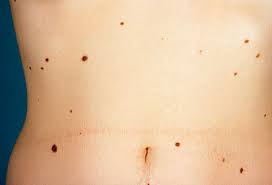
A recent study published by the Journal of American Medical Association researched the association between melanoma rates and indoor tanning in both men and women younger than 50 years.
Researchers studied a group of 681 men and women who had developed melanoma. The conclusion of the study showed that indoor tanning is a factor for an increase in melanoma rates more with young women. This is due to the fact than women usually start using indoor tanning younger than men do. It also stated that the rise in melanoma rates can be expected to continue unless there are restrictions placed on indoor tanning.
How Do Tanning Beds Affect the Risk of Melanoma?
Tanning beds emit ultraviolet radiation (UV). This UV radiation has been clearly proven to elevate the risk for development melanoma, along with other skin cancers.
Dr. Thomas Wright, medical director of Laser Lipo and Vein Center states, “It is alarming that we are seeing such high rates of skin cancers developing among the younger generation.” He also states that melanoma is becoming the most common cancer occurring in women aged 25 to 32 years of age and is mostly likely caused by tanning bed use.
He also says that he believes that restrictions on the use of indoor tanning should be implemented, especially among those who are very young. He continues by saying, “I believe that there should be more efforts made to educate the public — especially those that are at a higher risk.” He also points out that the state of Missouri has no regulations or restrictions on the use of indoor tanning by minors.
If you are interested in knowing more about how indoor tanning can affect your risk level for skin cancers, please contact us at the Laser Lipo and Vein Center. You are also encouraged to contact us should you have any concerns about any signs or symptoms of skin cancer that you may be experiencing. Dr. Wright and his team are here to ensure your skin’s health!
Lazovich D, et al. JAMA Dermatol. 2016;doi:10.1001/jamadermatol.2015.2938
